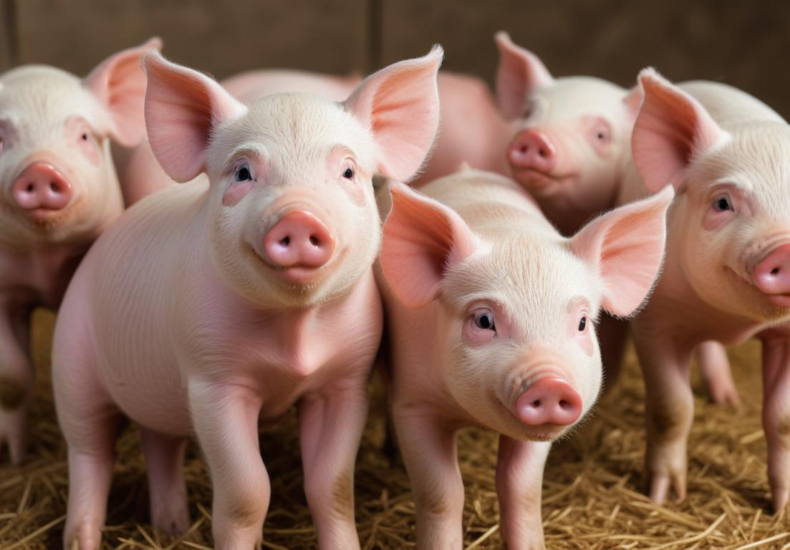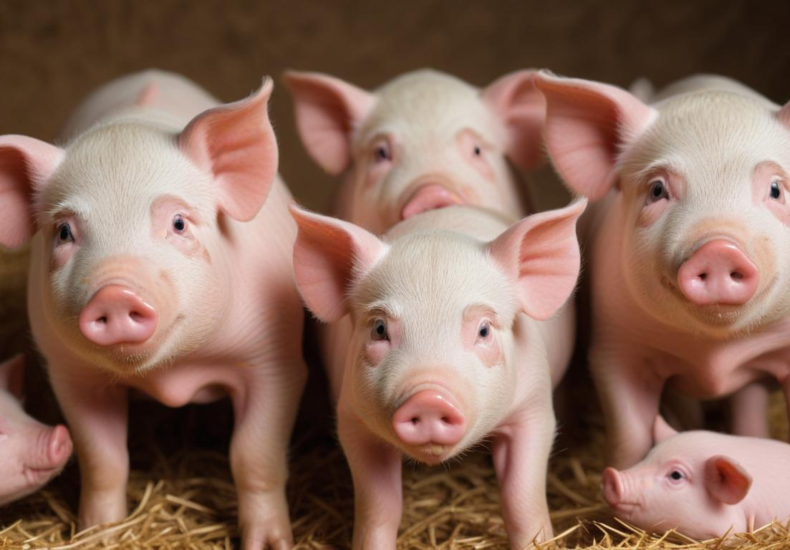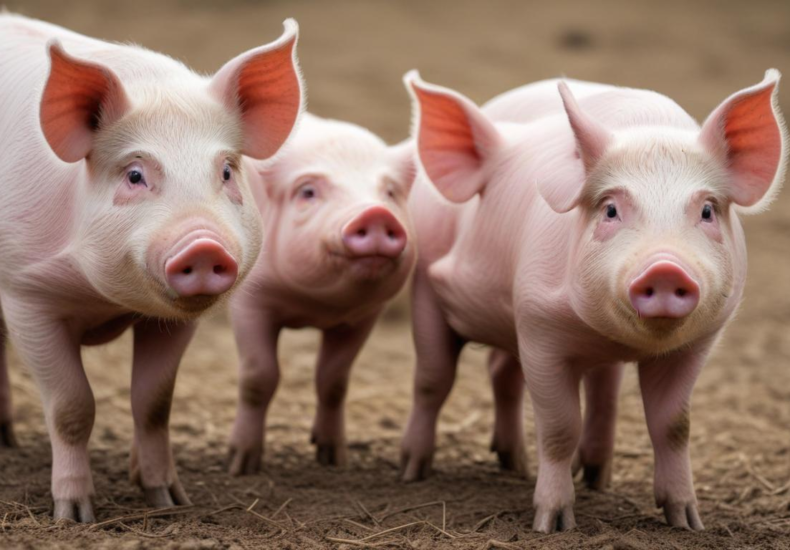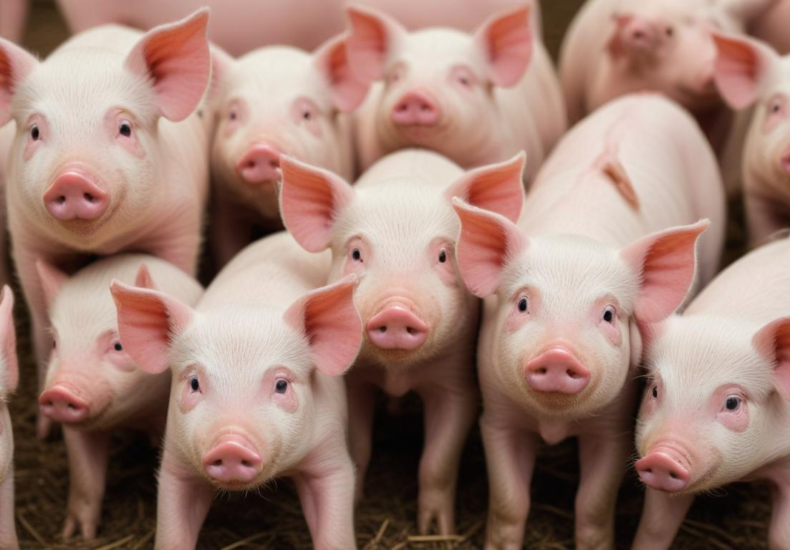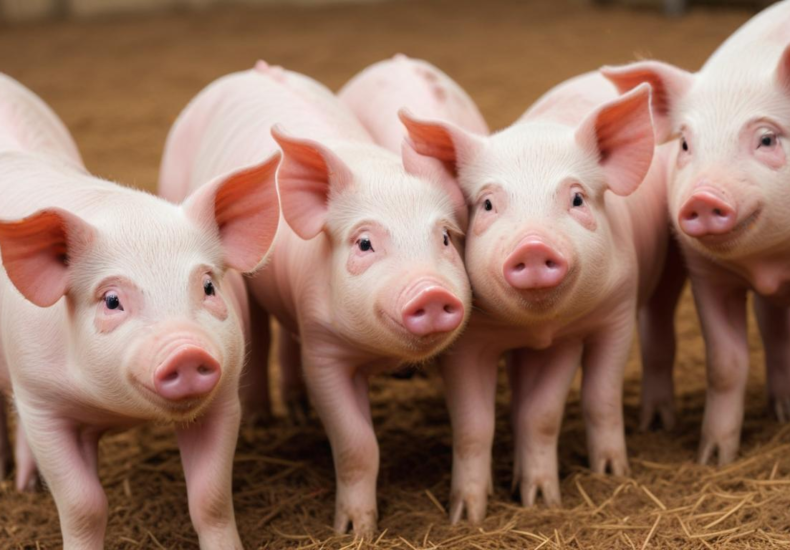Author: Pig Information
how genomic tools improve pig reproduction rates
The integration of genomic tools in pig breeding marks a transformative era in enhancing reproductive performance and productivity. By utilizing advanced techniques such as whole genome sequencing, genomic prediction, and gene editing, breeders can achieve more accurate evaluations and select for desirable traits. These innovations not only boost metrics like litter size and fertility rates but also facilitate faster genetic progress. As the pig breeding landscape evolves, the potential for sustained improvements in reproductive outcomes raises intriguing possibilities for the future of livestock production.
pigs genetics and reproduction explained
Explore the intricate world of pig genetics, where a complex interplay of heredity shapes essential traits like growth, reproduction, and disease resistance. Advances in genomic selection and biotechnological innovations are revolutionizing breeding practices, aiming not only for higher productivity but also for sustainable animal welfare. Delve into how traditional techniques blend with cutting-edge strategies to meet increasing market demands while maintaining genetic diversity and ethical standards in modern agriculture.
genetic mutations and their effect on pigs
Genetic mutations in pigs are nuanced changes in DNA that influence growth, health, and behavior. These mutations can arise naturally or through environmental factors, impacting traits critical for livestock productivity. Researchers employ advanced techniques like whole genome sequencing and CRISPR-Cas9 to map these changes, unveiling potential for enhanced breeding strategies. The insights gained not only aim to optimize pig health and welfare but also highlight the role of genetic diversity in conservation efforts, paving the way for a more sustainable future in swine production.
the impact of genes on pig reproduction
Genetics significantly impacts reproductive traits in pigs, influencing everything from litter size to fertility rates. Polygenic traits, meaning many genes affect them, show breeders the importance of combining genetic and environmental factors for optimizing reproductive performance. Recent advancements, including genomic selection and epigenetic research, offer promising new strategies for enhancing fertility and ensuring the sustainability of pork production. As the interplay of genetics, technology, and animal welfare evolves, understanding these complexities will be key to improving herd performance and meeting industry demands.
how pig DNA affects reproduction
The reproductive success of pigs hinges on a complex interplay of genetic traits encoded in their DNA, impacting litter size, fertility rates, and overall reproductive efficiency. Recent advances in genomic technologies allow breeders to identify specific genetic markers that enhance traits such as hormone regulation and gamete quality. As researchers delve deeper into these connections, the potential for targeted breeding programs to maximize reproductive success grows, raising intriguing possibilities for swine production and meeting global demands for pork.
the inheritance of maternal traits in pigs
Maternal traits in pigs encompass critical behaviors and characteristics that significantly impact reproductive success and offspring health. Key elements such as nursing behavior and protective instincts are vital for piglet survival and growth. Understanding the genetic and environmental factors influencing these traits offers opportunities for selective breeding and improved management practices. By optimizing conditions and employing genetic markers, producers can enhance maternal capabilities, ultimately leading to healthier herds and more efficient pig production systems. Delving into the complexities of these traits could unveil transformative strategies for the swine industry.
why pig breeding programs focus on genetics
Genetics is a cornerstone of successful pig breeding, influencing traits from growth rates to disease resistance. By employing advanced techniques like genomic selection and CRISPR-Cas9, breeders can enhance not only productivity but also animal welfare. As the pork industry evolves, the integration of data analytics and a focus on sustainable practices are reshaping breeding strategies. This dynamic approach promises to optimize pig populations for economic viability while addressing ethical concerns, ensuring a robust future for pork production. What innovative methods will define the next generation of pig breeding?
genetic differences between wild and domestic pigs
Genetic studies reveal stark contrasts between wild and domestic pigs, driven by evolutionary paths and human impact. Wild pigs boast a rich genetic diversity that enhances their adaptability and disease resistance, essential for survival in varied habitats. In contrast, selective breeding of domestic pigs prioritizes traits like growth and meat yield, often at the expense of their genetic variability. As researchers delve into these genetic differences, intriguing questions arise about the future of breeding practices, conservation efforts, and the potential for integrating the resilience of wild pigs back into domestic herds.
why litter size in pigs is a complex genetic trait
The genetics of litter size in pigs is a complex interplay of multiple genes, environmental factors, and physiological characteristics, such as ovulation rate and embryonic viability. This multifaceted relationship outlines the importance of strategic breeding practices that optimize both genetic selection and environmental conditions. Advancements in genomic selection and the integration of meticulous management strategies promise to enhance reproductive outcomes while navigating the intricacies of these traits. Understanding these nuances is vital for breeding programs aiming to boost litter sizes and overall productivity in swine operations.
the role of SNPs in pig genetics
Single nucleotide polymorphisms (SNPs) are critical genetic markers that enhance the understanding of swine genetics. With their ability to influence phenotypic traits and impact breeding programs, SNPs offer insights into growth rates, disease resistance, and reproductive performance. As genomic technologies advance, SNPs will play a pivotal role in breeding strategies, optimizing selection processes, and improving the genetic diversity of pig populations. Discover how SNPs are shaping the future of swine production and influencing the health and productivity of pigs in this rapidly evolving field.
Archives
Calendar
| M | T | W | T | F | S | S |
|---|---|---|---|---|---|---|
| 1 | ||||||
| 2 | 3 | 4 | 5 | 6 | 7 | 8 |
| 9 | 10 | 11 | 12 | 13 | 14 | 15 |
| 16 | 17 | 18 | 19 | 20 | 21 | 22 |
| 23 | 24 | 25 | 26 | 27 | 28 | |



